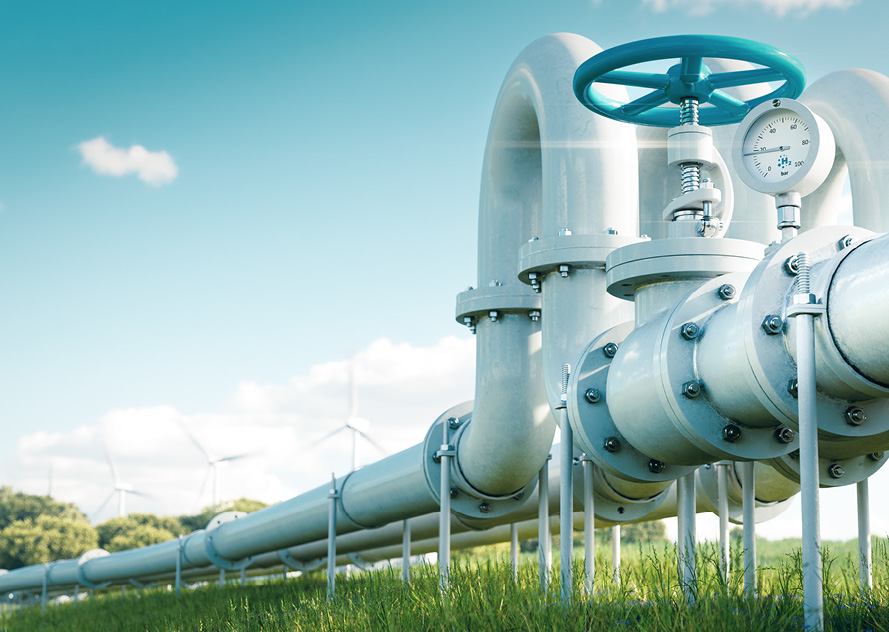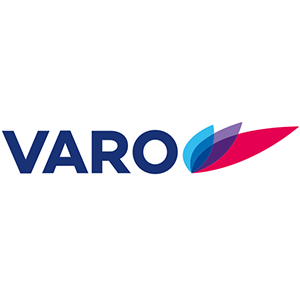
Stronger Communities
VARO

Transforming and accelerating the energy transition through conventional fuels
Founded in 2012 by Atlas and Vitol, VARO is a leading European energy company that manufactures, stores, and distributes conventional fuels and sustainable energies and services. Given its scale, we believe VARO plays a key role in facilitating Europe’s energy transition. In 2013, a fund managed by Carlyle acquired the company alongside the Vitol Group. Since then, both teams have worked closely with management to develop and implement a transformation strategy designed to capture opportunities associated with the energy transition, “future-proof” the company, and respond to the needs of employees, customers and governments.
VARO aims to be the energy transition partner of choice for reliable, accessible, and sustainable energy solutions, and is distinctly positioned to empower customers to pursue their own decarbonization efforts. VARO is playing its own part in this effort, with a goal to achieve net zero emissions by 2040. VARO plans for this ambitious goal to involve the following steps:
- Expanding CAPEX investments to USD $3.5 billion between 2022 and 2026—with at least two-thirds invested in biofuels, biomethane and bio-liquefied natural gas (bioLNG), hydrogen, e-mobility and carbon removals;
- Targeting to have 50% of group EBITDA come from the Sustainable Energies business by 2026;
- Setting a near-term reduction goal of 40% absolute reduction of Scope 1 and Scope 2 greenhouse gas emissions by 2030 and 15% reduction in Scope 3 greenhouse gas emissions intensity by 2030, each against a 2022 baseline.
With these ambitions in mind, the company announced its ONE VARO Transformation strategy in July 2022, laying out its path to provide customers the sustainable and reliable energy solutions needed to reach net zero. VARO’s “twin engine” strategy seeks to balance both energy security and energy transition requirements for all segments of its customers’ businesses. Here, “Engine 1” represents the Conventional Energies business while “Engine 2” refers to VARO’s Sustainable Energies business.
In order to help accelerate progress on this strategy, we worked alongside the VARO team to serve as a thought partner in the overall construction of the strategy. We also helped to recruit their current CEO, Dev Sanyal who has a demonstrated track record in this work from his previous role as EVP of Gas and Low Carbon Energy at BP.
Engine 1 consists of manufacturing, storage, trading, marketing, and distribution. This segment’s priority is to continue to operate safely and reliably, reduce carbon emissions and intensity, and provide the energy security that is essential for customers.
Moreover, VARO established a process to optimize its energy consumption process and continue investing in energy efficiency modifications and process improvements. For example, in 2017 VARO invested around $5 million to implement several energy projects at one of its main manufacturing hubs; these efforts have subsequently allowed the company to save energy and reduce its CO₂ emissions. VARO achieved a 6.6% energy efficiency improvement in 2022 compared with 2014—towards their target to increase energy efficiency by 6.8% in 2023. Some of the identified projects included:
- Modifying the processing unit (vacuum distillation furnace), which has saved an estimated 40,000 MWh of energy and cut emissions by 7,750 metric tons of CO2 between 2017 and 2020.
- Reducing the production of out-of-specification products (“slops”) by nearly 40%, which lowered the energy consumption needed for heating during the desulphurization process. Since 2017, this initiative has saved 35,000 MWh of energy and avoided 6,775 metric tons of CO2 emissions. In addition, slops reduction lowers the amount of low-quality byproduct, which normally accumulates in the tanks and requires further reprocessing.
- Adjusting the Hydrogen Manufacturing Units so that natural gas, rather than butane, can be used in the hydrogen generation process. Natural gas—which has a lower carbon content—has also replaced butane as a fuel feedstock for the furnace. Together, these modifications have reduced carbon emissions, saving 110,000 metric tons of CO2 since 2017.
Engine 2 consists of five strategic growth pillars that VARO believes have the most attractive low carbon growth potential while also capitalizing on VARO’s core strengths. The five pillars include:
- Biofuels: VARO seeks to become an integrated producer of 2G1 advanced biofuels, including Sustainable Aviation Fuel (SAF). Leveraging existing biofuels expertise, VARO aspires to build new renewable manufacturing facilities and, in time, repurpose older assets. The company is targeting Biofuel production of more than 250,000 metric tons per year by 2026 with a long-term goal of more than 500,000 metric tons per year. Most recently, VARO deepened its partnership with Lufthansa to explore the production and supply of SAF through a potential agreement for VARO to sell SAF volumes to Lufthansa beginning as early as 2026. The companies also plan to jointly investigate the use of non-edible biogenic feedstock to produce green hydrogen for potential later stage use in SAF production.
- Biomethane & LNG: Aiming to be a leading producer of biomethane and bio-LNG, VARO aspires to develop its portfolio through both acquisition and greenfield development. Doing so should strengthen offers to industrial and road transport sectors. One recent step VARO has taken is the acquisition of 80% of the shares in Bio Energy Coevorden BV (BEC) in The Netherlands, a biogas manufacturer. VARO plans to double the current facility capacity from 300 GWh to 650 GWh by 2026. After the expansion, the site will be among the 3 largest biogas facilities in Europe. Furthermore, VARO acquired Renewable Energy Services (RES) through which it further expanded its biogas trading capabilities across 10 European countries.
- Hydrogen: Utilizing its position as a hydrogen consumer to develop hydrogen production hubs, VARO has an existing project to invest in an electrolyzer at Bayernoil Refinery, with offtake meeting part of the demand from the refinery. Additional green and biogenic production could lead to offtake opportunities for industry, heavy transport, and synthetic fuels.
- E-mobility: With the goal of growing its turnkey charging solution for customers transitioning to E-mobility, VARO plans to focus on further partnerships and acquisitions to create new businesses and enter new, less mature markets. Through its acquisition of stakes in E-Flux, VARO is already at the heart of the EV ecosystem.
- Carbon Removal: VARO aims to develop a fully integrated carbon removal offering. Building upon its existing expertise in carbon removal from its majority stake in SilviCarbon, VARO plans to invest in forestry projects to generate high-quality nature-based carbon removal credits over the next five to ten years, and will look to optimize these efforts through advisory and trading.
In order to support this change, VARO is focused on accelerating progress within key organizational building blocks. Carlyle works closely with VARO’s management to support the implementation of this strategy and the advancement of its ambitious ESG agenda along key pillars including leadership and governance, partnerships, and motivated employees.
VARO looks forward to making progress on its strategy, which is central to its plan to create value over the long term. In a changing world, VARO believes that reorienting the company into the high growth, low-carbon sector will generate EBITDA growth, and place VARO at the forefront of the energy transition.
“Energy provides access to a better life and can be a driving force for prosperity. The exciting thing about our industry is that it is in the perfect convergence of innovation, disruption, and opportunity. Our new ONE VARO transformation strategy is part of our journey to achieve a just transition, and environmental, social, and governance commitments are a fundamental component of this approach.”
– Dev Sanyal, CEO of VARO.
All data has been provided directly by the relevant portfolio company and has not been verified by Carlyle or any third party. References to a particular portfolio company should not be considered a recommendation of any particular security, investment, or portfolio company. The information provided about the portfolio company is intended to be illustrative, and is not intended to be used as an indication of the current or future performance of this or any of Carlyle’s portfolio companies. ESG goals, targets and commitments are not binding on investment decisions and/or Carlyle’s management of investments (unless otherwise specified, where applicable, in fund documentation or regulatory disclosures) and any reference herein to environmental, social or governance considerations is not intended to qualify our duty to maximize risk adjusted returns. There is no guarantee that any ESG target or related projection will be met, that any ESG activities will be implemented to the same degree for other Carlyle investments or that they will create a positive ESG or financial impact. Descriptions of any ESG or impact achievements or improved practices or outcomes are not necessarily intended to indicate that Carlyle has substantially contributed to such achievements, practices, or outcomes. For instance, Carlyle’s ESG efforts may have been one of many factors—including such other factors as engagement by portfolio company management, advisors, and other third parties— contributing to the success described in each of the selected case studies. The information provided in these case studies is for informational purposes only and may not be relied on in any manner as advice or as an offer to sell or a solicitation of an offer to buy interests in any fund or other product sponsored or managed by Carlyle or its affiliates.